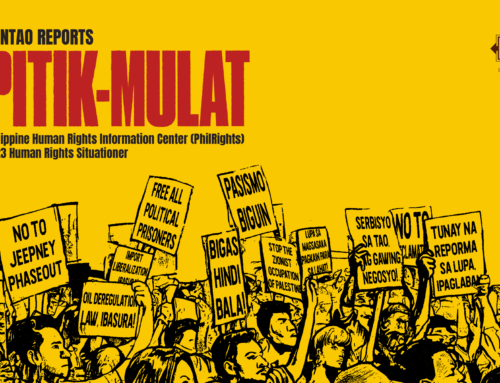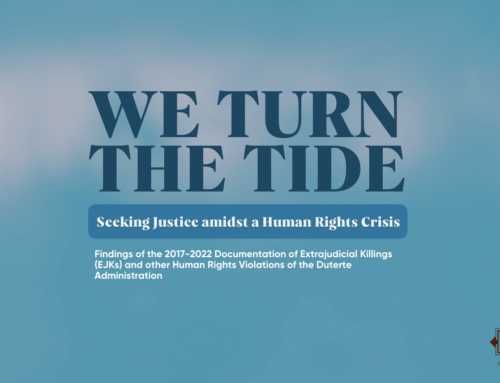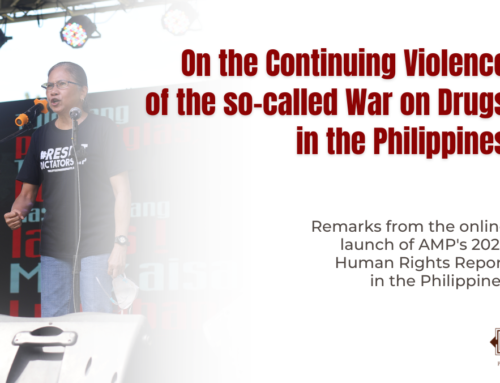(Bishkek) – An appeals court in Bishkek should stop the extradition of a former Imam to Uzbekistan, where he would be at serious risk of torture. On February 5, 2013, the court is scheduled to hear an appeal of the prosecutor general’s decision to extradite Khabibullo Sulaimanov, an Uzbek national, in response to a request by the Uzbek government for extradition on religious extremism-related charges.
The authorities appear to have stalled Sulaimanov’s efforts to register as an asylum seeker in Kyrgyzstan. The United Nations High Commissioner for Refugees sought access to Sulaimanov at a temporary detention center in Bishkek, where he has been held since he was detained on October 6, 2012. But the State Committee on National Security (GKNB) has not granted permission. The Ministry of Youth, Labor and Employment has not registered Sulaimanov’s claim for asylum either, despite receiving a copy of his claim in late November 2012.
“The ban on torture is absolute in international law, and under no circumstances should someone who faces a clear risk of torture be extradited to Uzbekistan,” said Mihra Rittmann, Europe and Central Asia researcher at Human Rights Watch. “The authorities also have a clear responsibility to process Sulaimanov’s asylum claim since he is seeking international protection from religious persecution.”
On February 1, Human Rights Watch sent a letter to the prosecutor general, urging her to withdraw the extradition order, in line with Kyrgyzstan’s international commitments.
Torture is widespread and systematic in Uzbekistan’s criminal judicial system, and people held on religion-related charges are often subjected to especially harsh ill-treatment. Kyrgyzstan is a party to the Convention against Torture and Other Cruel, Inhuman or Degrading Treatment or Punishment, as well as to the International Covenant on Civil and Political Rights, both of which prohibit extraditing a person to a country where they face a risk of torture or inhuman or degrading treatment.
Under international law, Kyrgyzstan may not return Sulaimanov to Uzbekistan under any circumstances and regardless of the charges the Uzbek authorities have brought against him, Human Rights Watch said.
The widespread and systematic torture of detainees in Uzbekistan has been well-documented by human rights groups and UN bodies, such as the Committee Against Torture and the UN special rapporteur on torture. Human Rights Watch’s December 2011 report, “No One Left to Witness: Torture, the Failure of Habeas Corpus, and the Silencing of Lawyers in Uzbekistan,” documented the continuing, widespread use of torture and ill-treatment in pretrial detention in Uzbekistan. Human Rights Watch documented cases in which authorities poured boiling water on an activist, hung detainees by their wrists and ankles, subjected them to rape and sexual humiliation, and asphyxiated them with plastic bags and gas masks.
Thousands of people in Uzbekistan languish in prison on religion-related charges for nonviolent offenses. The Uzbek government has a well-documented record of unlawful arrest or detention of those who meet privately for prayer or Islamic study, those who belong to Islamic groups not registered with the government, or those who possess Islamic literature not generated by the government. The government often singles them out as “extremists” for no reason other than the peaceful expression of their religious beliefs.
Sulaimanov, 56, was detained by Kyrgyz security agents in his home in Bishkek. He had fled Uzbekistan, where he had been working as an imam, in 2001, fearing religious persecution. He has been living in Bishkek with his family over the last 10 years.
The extradition order issued by the Kyrgyz prosecutor general’s office on November 13 says that Sulaimanov is wanted in Uzbekistan on charges of “leading, organizing or participating in a religious extremist organization” (article 244) and “attempting to overthrow the constitutional order,” (article 159) as well as illegal border crossing (article 223). The extradition order approves his extradition to stand trial on criminal charges under article 244, but not articles 159 or 223, as the Kyrgyz Criminal Code does not have equivalent charges.
Sulaimanov and his lawyer contested the extradition order, but a first instance court in Bishkek upheld the prosecutor general’s decision.
In recent years, the government of Kyrgyzstan has not fully carried out its obligations in international and national law regarding the protection of asylum seekers and refugees from Uzbekistan, Human Rights Watch said.
Since 2005, more than a dozen asylum seekers and refugees have been forcibly returned or extradited to Uzbekistan, despite facing torture there, and Kyrgyzstan failed to investigate and hold accountable officials who have been complicit in the forced returns and extraditions.
The UN Human Rights Committee, the expert body that monitors compliance with the International Covenant on Civil and Political Rights, has noted similar concern in recent years. In its first decision on Kyrgyzstan (Maksudov et al. v. Kyrgyzstan), the committee ruled on July 16, 2008, that Kyrgyzstan breached the rights to personal liberty, freedom from torture, and right to life of four Uzbek refugees extradited to Uzbekistan in August 2006 and should provide effective remedy and put in place effective monitoring of the four refugees’ situation. The decision stressed the obligations of Kyrgyz authorities to refrain from returning people wanted by Uzbekistan’s government, taking into account the great risk of torture there, and found that the “procurement of assurances from the Uzbek General Prosecutor’s Office … was insufficient to protect against such risk.”
“Kyrgyzstan’s binding legal obligations in this case are crystal clear,” Rittmann said. “Do not return Sulaimanov to Uzbekistan, a country where he faces a serious risk of torture.”
Powered By WizardRSS.com | Full Text RSS Feed | Amazon Plugin WordPress | Android Forums | WordPress Tutorials







